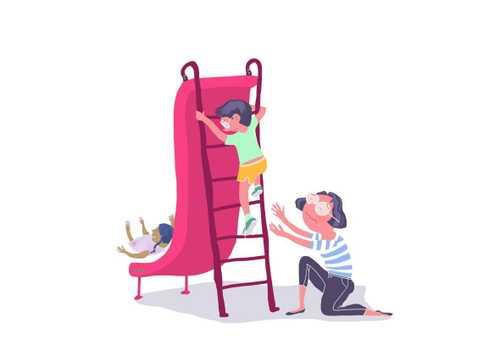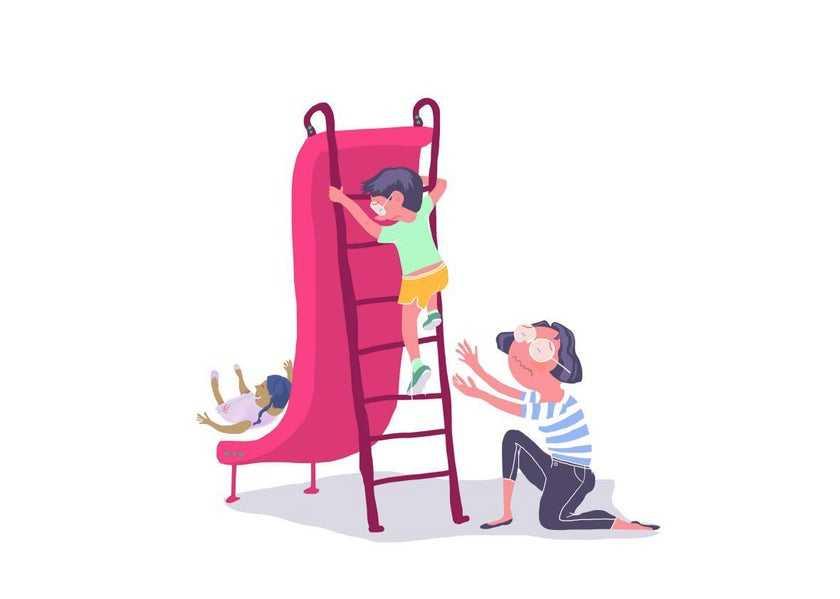Is Your Child a Worrywart? Here’s How to Make Her Less Anxious.
Curated from: slate.com
Ideas, facts & insights covering these topics:
7 ideas
·683 reads
8
Explore the World's Best Ideas
Join today and uncover 100+ curated journeys from 50+ topics. Unlock access to our mobile app with extensive features.
Children are overanxious
There is a growing epidemic of anxiety among youth today. Children feel stressed about almost everything because they are overtested or helicopter-parented or spend all their time online.
However, research proposes some strategies parents can use to recognise and relieve or prevent anxiety in their children.
15
331 reads
Lifestyle changes could increase childhood anxiety
Fears are a normal part of a child's life. Children are afraid of the dark, or spiders or nurses. They worry about making friends or being separated from their parents. However, some children have more trouble managing their fears.
While researchers don't know why childhood anxiety might be more common than in the past, they suggest lifestyle changes could be one reason. For example, there are fewer filters to shield a child from the impact of negative events, such as social media and 24-hour news coverage.
15
61 reads
Anxiety colours how you see the world
Anxiety influences how a person will interpret and react to his environment. Anxious people often assume the worst. Even a neutral situation may be seen as threatening.
Anxiety in kids is often unknowingly promoted or reinforced through their parents. They watch and listen to how their parents interpret and interact with the world.
16
66 reads
Priming behaviour
Research suggests that young children can develop fears simply by watching their parents. If a mother of a 1- or 2-year old behaved anxiously around strangers, the child was more likely to show fear and avoid strangers.
You may be able to help your child simply by adjusting your own behaviour. If you don't want your child to fear something like spiders, you might want to mask your own fear when you come in contact with one.
14
61 reads
Show your child how you cope
Masking a fear does not mean one should pretend you're not afraid of anything. Researchers state that pretending that you never get scared shows a child that it is 'weird' to be fearful of something.
It may be more useful for parents to share how they cope with their own fears. For example, tell your child that you get scared of flying but that you've learned to take deep breaths and remind yourself that aeroplane crashes are very rare.
15
46 reads
Try not to be overbearing
To ease anxiety in kids, a parent can try not to be overbearing. For example, don't constantly spot your child on the climbing frame or to tell her to be careful every time she climbs out of the bathtub, even if she can do it reasonably safely.
This negative intervening can have many harmful effects, such as hacking away at their self-confidence or making them feel helpless when they are not. Instead, try to show trust in their abilities.
15
52 reads
Parental over-involvement
Research suggests letting children feel in control of their environment is vital for building confidence and decreasing anxiety. Children need the chance to problem-solve on their own. If you always step in to help, you're effectively saying that your child can't do it.
However, research also found that anxious children may elicit increased involvement and help from their parents, making them less confident. This means, if you have an anxious child, try your best not to intervene prematurely.
18
66 reads
IDEAS CURATED BY
Adaline W.'s ideas are part of this journey:
Learn more about health with this collection
Improving sleep through mindful breathing exercises
Practicing stress reduction and relaxation techniques
Establishing a relaxing bedtime routine
Related collections
Similar ideas
6 ideas
How to Avoid Passing Anxiety on to Your Kids
childmind.org
4 ideas
Back-to-School anxiety: Ways to help your child cope
childrens.com
14 ideas
What Happened to American Childhood?
theatlantic.com
Read & Learn
20x Faster
without
deepstash
with
deepstash
with
deepstash
Personalized microlearning
—
100+ Learning Journeys
—
Access to 200,000+ ideas
—
Access to the mobile app
—
Unlimited idea saving
—
—
Unlimited history
—
—
Unlimited listening to ideas
—
—
Downloading & offline access
—
—
Supercharge your mind with one idea per day
Enter your email and spend 1 minute every day to learn something new.
I agree to receive email updates


